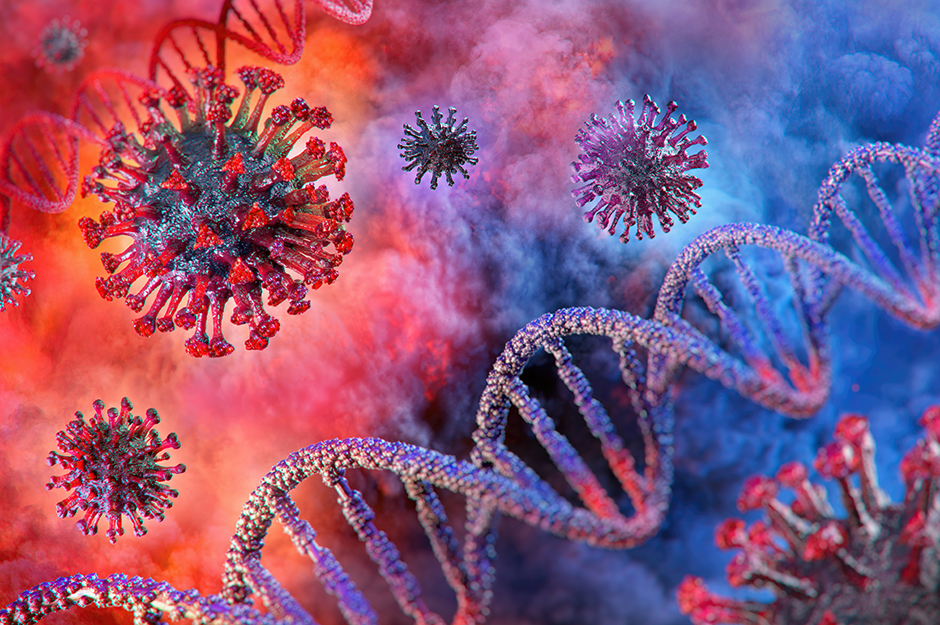Affecting life in every corner of the globe, viruses are the focus of a new Department of Biology course that attracted many students this spring.
According to assistant professor Cynthia Silveira, “The Biology of Viruses” examines the complex nature of viruses as biological entities—an inquiry that has gained extraordinary relevance during a global pandemic.
“The Biology of Viruses is not a typical virology course, which would study viruses as mere pathogens,” says Silveira. “Viruses are integral parts of ecosystems and organisms. We are studying their molecular biology, their ecology, and how their interactions with cellular organisms shape the evolution of life itself.”
In development before the novel coronavirus emerged, the course has since been altered to address concerns and questions about the SARS-CoV-2 pathogen.
“This course has given me a new perspective on viruses,” says senior Aloki Patel, who is majoring in biology and criminology, with minors in chemistry and exercise physiology. “Especially during these unprecedented times, the course is extremely relevant and provides thorough information on viruses as fast-evolving ‘biological entities.’
“It has definitely increased my understanding of how viruses interact with humans and other animals.”
The coronavirus pandemic serves as a compelling real-time case study for the students to recognize and analyze a viral phenomenon and its impact on humans. Viruses are best known for their role in plagues but—as fundamental components of biology—they also serve important and often beneficial roles in human life.
“Among the most surprising things students learn is that a large fraction of the human genome is composed of viruses that became incorporated in the genomes of our ancestors,” Silveira says. “Some of these viral genomes gave origin to genes that, for example, form the placenta and participate in memory storage.”
Silveira ensures that students take an active role in learning about viruses by providing them with an array of tools and research methods to understand the multifaceted nature of these tiny but powerful entities. At the start of the semester, students were given a genome in the form of a digital file, and every week they learn a different bioinformatic tool with which to study it. The goal is for students to develop different methods and approaches to navigate, process, and understand the information and eventually reach their own conclusions about the genome they studied.
“Having a background on the structure and activity of viruses will provide me with much-needed insight as I prepare for my master’s degree in public health,’’ says Alexandrea Masocco, a senior who is double-majoring in biology, and religion and health care. “It’s really great that the University is offering this class, especially during a pandemic.
“The more we understand viruses, the more knowledge we can apply to diseases and treatments.”
For more information about the Department of Biology, visit biology.as.miami.edu.

